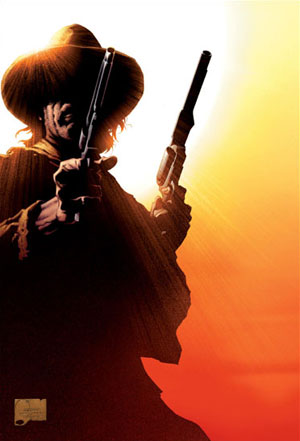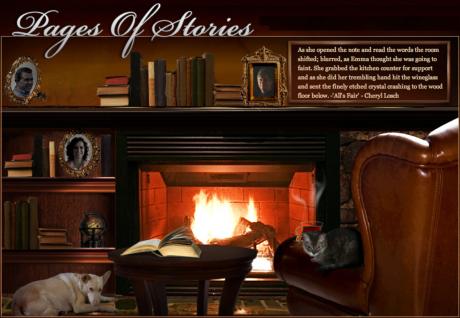(with a lot of help from Kurt Sercu)
3. 11/22/63 (Scribner, $35)
By Stephen King. A modest English professor is offered the chance to change history — by preventing the JFK assassination.
Washington Post, description of the number 3 book on the bestseller list, December 4, 2011
* * * *
Add to that sense of ho-humness the fact that the secret in question turns out to be rather murky, and many readers will be left wondering exactly what is “the most dangerous thing” referred to in the title. (Beats me.)
Quoted from Maureen Corrigan’s review of Laura Lippman’s “The Most Dangerous Thing,” Washington Post, October 9, 2011
What do these two quotes from the Washington Post have in common other than referring to two recently published bestsellers? At least one other thing: they each contain errors unpardonably obvious to anyone who has actually read Stephen King’s 11/22/63 or Laura Lippman’s The Most Dangerous Thing. In King’s book the protagonist is a high school English teacher, not a college professor. And no reader who actually finishes Laura Lippman’s latest novel The Most Dangerous Thing (which I liked a lot) could have the smallest doubt as to what the most dangerous thing is. That question (and the title) is explicitly explained, for anyone who hasn’t already figured it out, in the last sentence of the book. (You know me, no spoilers – just telling you where you can find it, not what it is!)
I am pretty unforgiving about errors such as those discussed above. I mean, all the journalist assembling the list of bestsellers for the Washington Post had to do was write one correct sentence about 11/22/63. And all Ms. Corrigan had to do was to actually read the book that she was reviewing, start to finish. One can be more forgiving, however, when it is Mr. King or Ms. Lippman who get something wrong, or seemingly wrong, during the course of their novels. These, after all, are not factual reviews, they are works fiction, and they come to us with the established leniency of poetic license.
One of the funny things about such seeming mistakes, therefore, is that sometimes they are not errors at all. Laura Lippman, for example, in an afterward, discusses the liberties she has taken with the real-life town of Dickeyville, Maryland in The Most Dangerous Thing. And Stephen King is famous for dropping snippets of information into his works that could be historical errors but that could also be references to other King works, usually clues hearkening back to his seven (soon to be eight) volume Gunslinger series. Notwithstanding this, however, Stephen King can be a bit defensive when it comes to defending his own research.
In The Colorado Kid (which, as noted in a previous column, is not my favorite work by King) there is a reference to a Starbucks coffee shop in Denver, Colorado in 1980. When a USA Today review of the book mentioned that there in fact were no Starbuck stores in 1980 Denver, Mr. King bristled, and posted the following retort on his website: "The review of The Colorado Kid in [the October 7, 2005] issue of . . . USA Today mentions that there was no Starbucks in Denver in 1980. Don’t assume that’s a mistake on my part. The constant readers of the Dark Tower series may realize that is not necessarily a continuity error, but a clue.”
Hmmm. Allow me to digress for a paragraph. For many years my brother and I gave my mother a gag gift as the last gift of Christmas each year. These were really stupid things – a three foot tall plastic goose that lights up, a kit kat clock, an autographed picture of Dwayne Hickman (“Dobie Gillis” -- remember?). We always told my mother that each gift was a clue to a secret message that would be revealed over the course of future Christmases. We continued this silly stunt for twenty five years and every year my mother would fret over what the growing number of “clues” had in common, what they might point to. Get the picture? We were just winging it. No secret message, just stupid disparate gifts.
Okay – back to the issue at hand. I have read all of Stephen King’s books, including all of the Gunslinger series, and I’ll be damned if I can figure out how the presence of a Starbucks in 1980 in Denver has anything to do with Roland’s grand quest in the Gunslinger. So was that Starbucks a clue, or was it an “oops?”
With all of this in mind, let’s poke around a little in Stephen King’s latest novel 11/22/63. As I wrote two weeks ago, I think this is a stand-out novel, to my mind the best thing Stephen King has done in over ten years. And I don't want to detract from the novel by trolling for errors. But that doesn’t mean we can’t have a little fun with it!
Given the novel’s time travel theme King in 11/22/63 is called upon to describe and re-create life in the era from 1958 to 1963. Let’s take a look at how he does on just one aspect of that quest, his repeated references to another of my favorite authors (and characters) Ellery Queen.
I suspect that Stephen King is an Ellery Queen fan. After all, Ellery pops up in many King novels, including in the aforementioned The Colorado Kid. Indeed, in explaining that there will be no solution offered up in that novel to the mystery that is at its core, the heroine is admonished by one of her mentors that she should not expect Ellery “to come waltzin’ out of the closet” with a solution. The solution to the mystery in The Colorado Kid remains a mystery to me, but so too the connection, if any, between that Denver Starbucks store and the Gunslinger.
11/22/63 also contains several references to Ellery Queen, most notably to the NBC series “The Further Adventures of Ellery Queen,” which aired from 1958 through 1959. The timing of certain events in the novel (I’m carefully avoiding spoilers here) are critically dependent on the timing of an episode of the series that, according to the storyline of the novel, was aired on Halloween night, 1958. At the first mention of the television show in the novel I wondered whether the Ellery Queen series had, in fact, aired on Halloween night in 1958. This sent me off to Kurt Sercu’s repository of Queen information, Ellery Queen – a Website on Deduction. (Kurt’s site was the focus, many will recall, of an earlier article.) And I was immediately rewarded – according to Kurt’s website on Friday, October 31, 1958 The Further Adventures of Ellery Queen, starring George Nader as Ellery presented the following episode:
10/31/58 With John Abbott, Paul LangtonCat of Many Tails
George Nader as Ellery Queen
The mayor of New York City calls on Ellery to help solve a series of strangulations for which the police can find no motive but which they believe to be the work of one killer.The story, based on Queen’s 1949 novel of the same title, is a perfect one for Halloween.
However, about 100 pages further into 11/22/63 the hero secures a copy of TV Guide to check on the timing of the Halloween broadcast, and there the episode is described as follows:
8 PM, Channel 2: The New Adventures of Ellery Queen, George Nader, Les Tremayne, “So Rich, So Lovely, So Dead.” A conniving stockbroker (Whit Bissell) stalks a wealthy heiress (Eva Gabor) as Ellery and his father investigateWhat happened to Cat of Many Tails? Kurt’s website in fact identifies an episode of the series titled “So Rich, So Lovely, So Dead,” and that episode otherwise meets the description in King’s book. Except for one fact: the episode aired one month later, on November 28, 1958. “What is going on, here?” I thought. Then I immediately sent an email across the pond to Belgium posing that same question to Kurt.
Kurt dove into his archive of Queen documentation and came up with pretty irrefutable evidence that it was, indeed, “Cat of Many Tails” that aired on Halloween in 1958. First Kurt pointed out that Francis Nevins lists the episode as the one appearing on Halloween in his definitive article "Ellery Queen on the Small Screen" which appeared in The Armchair Detective volume 12, 1979. Second, the episode is also identified as having aired on Halloween according to the television archives maintained by the Theatre Arts Library at UCLA. Third, from Kurt’s own archives he uncovered a 1958 NBC press memorandum that also identifies Cat of Many Tails as the Halloween episode. And fourth, Kurt supplied me with a TV listing from Halloween week, 1958 also identifying Cat of Many Tails as the episode that aired that night.
 |
| Halloween Week 1958 |
 |
| Halloween Week 1959 |
After all of this Kurt and I sort of had a burr under our saddle so we went back to trolling the internet. Just as the heroine in The Colorado Kid tried to solve her unsolvable mystery, so too Kurt and I got a little obsessed with what was going on back in the 1950s, at least according to King’s view. Lo and behold, we eventually found the TV Guide cover above on the right. Yep, it features Fred Astaire and Barrie Chase, and it was published on the week of Halloween. But Halloween of 1959, not 1958.
 And that’s as far as we got. So, just like the heroine in the The Colorado Kid, you should not expect Ellery to come “waltzin out of the closet” tying together all of those clues and making sense out of the 1958 TV schedule as set forth in 11/22/63. Did Stephen King encounter a (minor) researching “oops” that caused him to miss the date of the Ellery Queen episode he refers to by one month, and the date of the cover of TV Guide by one year? Or is the Gunslinger and his ka-tet sleeping just a bit easier under a desert moon in an alternative 11/22/63 universe where history has been set right and Fred Astaire and Barrie Chase’s Halloween TV Guide cover exists where it was supposed to, in 1958?
And that’s as far as we got. So, just like the heroine in the The Colorado Kid, you should not expect Ellery to come “waltzin out of the closet” tying together all of those clues and making sense out of the 1958 TV schedule as set forth in 11/22/63. Did Stephen King encounter a (minor) researching “oops” that caused him to miss the date of the Ellery Queen episode he refers to by one month, and the date of the cover of TV Guide by one year? Or is the Gunslinger and his ka-tet sleeping just a bit easier under a desert moon in an alternative 11/22/63 universe where history has been set right and Fred Astaire and Barrie Chase’s Halloween TV Guide cover exists where it was supposed to, in 1958?Oops? or Ka?






















